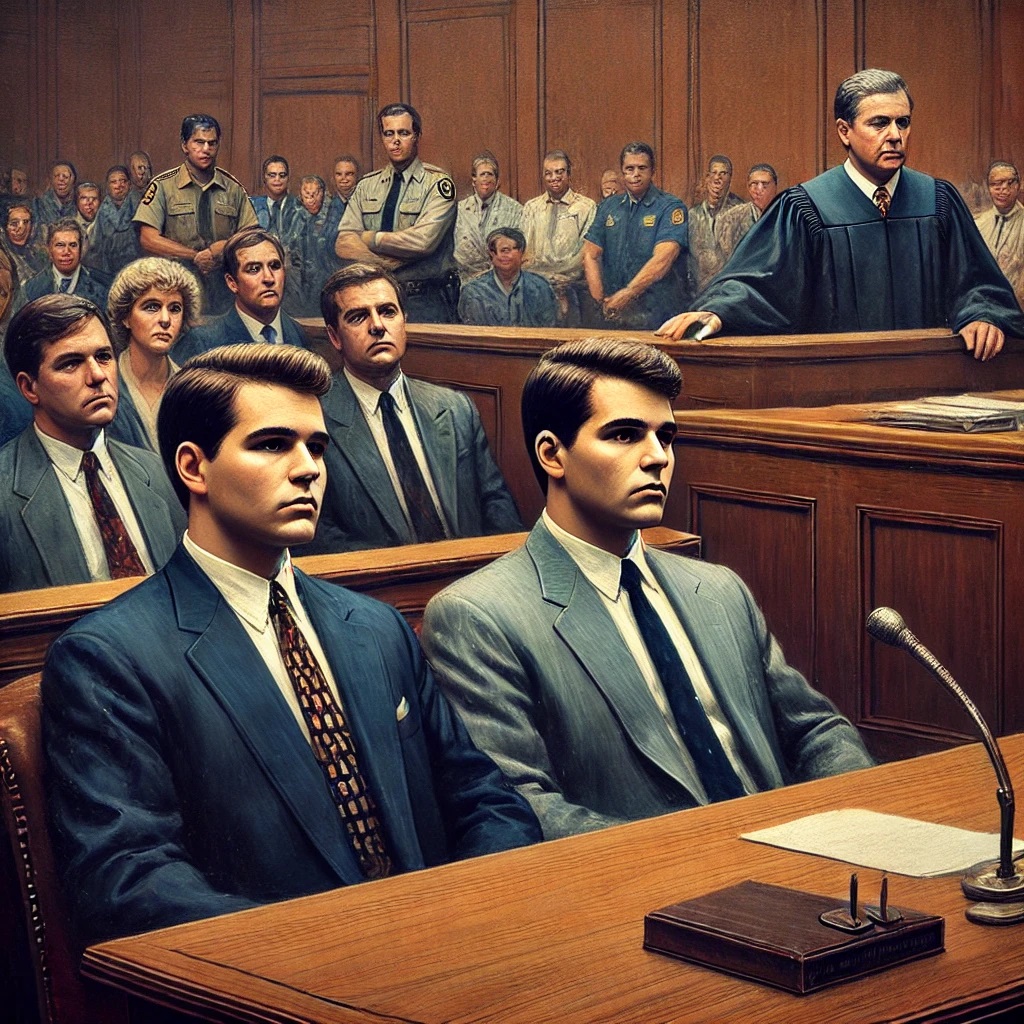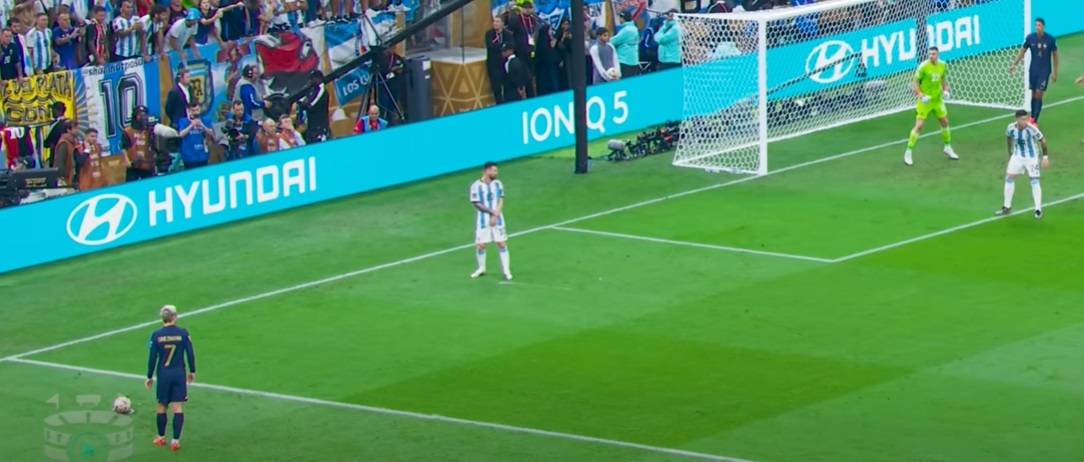The case of Lyle and Erik Menendez is one of the most infamous in American history. The Menendez Brothers were convicted of murdering their wealthy parents, José and Kitty Menendez, in cold blood. Their trial was widely televised and captivated audiences across the country, as the details of their lives and the motive behind the crime unraveled in shocking twists and turns.
While some viewed the Menendez brothers as cold-blooded killers motivated by greed, others believed their claims of enduring years of abuse at the hands of their parents. This article explores the crime, the trial, and the lasting legacy of this notorious case.
The Menendez Family Background
José Menendez was a successful Cuban-American business executive, known for his work in the entertainment industry. His wife, Kitty, was a former school teacher and homemaker. Together, they lived in a sprawling mansion in Beverly Hills with their two sons, Lyle and Erik. The family was the picture of wealth and success from the outside, but as would later be revealed, the Menendez home was far from idyllic.
Both Lyle and Erik were raised in luxury, attending prestigious schools and participating in various sports and activities. However, there were reports that the relationship between the brothers and their parents was strained. José was described as a strict, domineering father who placed immense pressure on his sons to succeed, while Kitty was reported to have struggled with mental health issues, including depression and substance abuse.
The Murders of José and Kitty Menendez
On the night of August 20, 1989, Beverly Hills police received a frantic 911 call from Lyle Menendez, then 21 years old, reporting that his parents had been murdered in their home. When officers arrived at the scene, they found José and Kitty shot to death in their living room, in what appeared to be a brutal execution-style killing. José had been shot multiple times in the head, while Kitty had suffered similar injuries, with defensive wounds indicating she had tried to escape.
In the immediate aftermath of the murders, Lyle and Erik, then 18 years old, appeared distraught. They told authorities that they had been out that evening and returned home to find their parents dead. At first, investigators considered the possibility of a mob hit, given José’s high-profile business dealings.
However, over the following months, suspicions began to grow about the Menendez brothers‘ involvement. Despite their apparent grief, Lyle and Erik began spending extravagantly. They purchased luxury cars, expensive watches, and even real estate, all using their parents’ estate. Their behavior raised eyebrows, and investigators began to dig deeper into the brothers’ lives.
The Arrest and Confession
As police began to focus more on Lyle and Erik, they discovered that the brothers had been behaving unusually in the weeks leading up to the murders. Investigators also learned that the brothers had purchased shotguns just days before the killings.
The break in the case came when Erik Menendez confessed to the murders during a therapy session with his psychologist, Dr. Jerome Oziel. Oziel’s mistress, who had overheard the confession, later came forward to authorities. Based on this information, both Lyle and Erik were arrested and charged with the murders of their parents in March 1990.
The Trial and Defense Claims of Abuse
The Menendez brothers’ trial began in 1993, and it quickly became a media sensation. The defense, led by attorney Leslie Abramson, argued that Lyle and Erik had killed their parents in self-defense after enduring years of emotional, physical, and sexual abuse at the hands of José and Kitty. Abramson portrayed the Menendez home as a house of horrors, where the boys lived in constant fear of their father’s violent temper and were subjected to sexual abuse by both parents.
Lyle and Erik testified in graphic detail about the alleged abuse, painting a picture of their father as a tyrannical figure who controlled every aspect of their lives. They claimed that the murders were the culmination of years of suffering and that they believed their parents were going to kill them to prevent them from revealing the abuse.
The prosecution, on the other hand, argued that the Menendez brothers had committed the murders out of greed, motivated by the desire to inherit their parents’ fortune. They pointed to the brothers’ lavish spending in the months following the murders as evidence of their true motives.
Public Reactions and the Role of Media

The trial was one of the first to be extensively covered on television, with Court TV broadcasting the proceedings live. The case became a national obsession, with millions of viewers tuning in to watch the drama unfold. The Menendez brothers’ testimony, in particular, captivated audiences as they tearfully recounted the alleged abuse they had suffered.
However, public opinion was divided. Some believed the brothers’ claims of abuse and saw them as victims who had been pushed to the brink. Others viewed their testimony as a fabricated defense strategy designed to elicit sympathy and justify the murders.
The Verdicts and Sentencing
After months of testimony and deliberation, the first trial ended in a mistrial in January 1994, as the jury was unable to reach a unanimous verdict. The defense’s claims of abuse had struck a chord with some jurors, while others believed the brothers were guilty of murder for financial gain.
In 1995, the Menendez brothers were retried. This time, the judge did not allow the defense to present much of the evidence related to the alleged abuse. The prosecution focused heavily on the brothers’ extravagant spending after the murders and argued that the killings were premeditated.
In March 1996, both Lyle and Erik Menendez were found guilty of first-degree murder. They were sentenced to life in prison without the possibility of parole. The brothers were sent to separate prisons, although in 2018, they were reunited and allowed to serve their sentences at the same facility.
The Legacy of the Menendez Brothers Case
The Menendez brothers’ case remains one of the most talked-about criminal trials in American history. It raised complex questions about family dynamics, abuse, and the justice system. While many still debate whether the brothers were victims or cold-blooded killers, there is no doubt that the case left a lasting impact on popular culture.
In the years since their conviction, the Menendez brothers have continued to make headlines. They have both married while in prison, and in recent years, a growing number of people, particularly younger generations, have begun advocating for their release, citing the allegations of abuse as a mitigating factor in their crime. Documentaries, television specials, and even a fictionalized drama series have kept the case in the public eye.
The Cultural Impact
The Menendez brothers’ trial is often compared to other high-profile cases of the time, such as the O.J. Simpson trial. Both cases highlighted the role of the media in shaping public perceptions of criminal justice and the lives of those involved. The televised nature of the Menendez trial turned it into a spectacle, with viewers scrutinizing every detail.
Over the years, the case has been the subject of numerous documentaries, books, and television shows. The ongoing interest in the Menendez brothers reflects society’s fascination with crime, celebrity, and the complex nature of family relationships.
Final Thoughts
The Menendez brothers’ case is a haunting example of how a seemingly perfect family can harbor dark secrets. Whether you believe the brothers were justified in their actions or view them as murderers driven by greed, their story serves as a tragic reminder of the complexities of family life and the far-reaching impact of abuse.









Leave a Reply